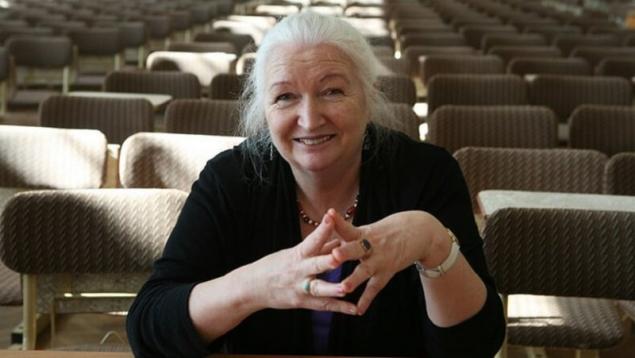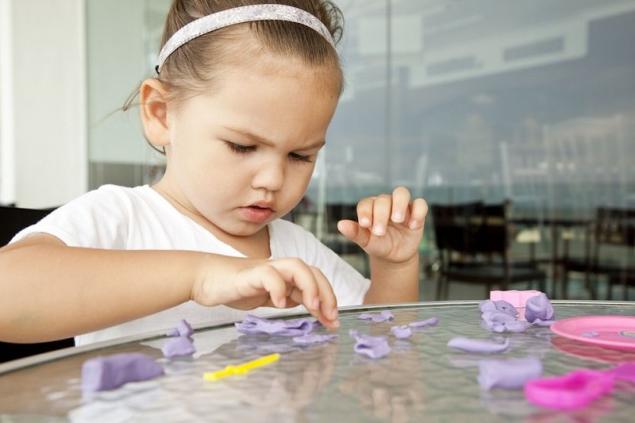131
Can a child be taught to read at age two?
In the past few years, there has been a trend: children are beginning to learn to write and read almost from the diapers. Many parents teach a child from the age of two what they themselves learned in 5 years. But isn't it traumatizing the baby? How justified is this approach to educating and educating children?

DepositPhotos
Editorial "Site" I decided to look into it. We learned the opinion of a psycholinguist, neuroscientist, professor of St Petersburg University Tatiana Vladimirovna Chernihivskaya about this. And we totally agree with her!
Modern parents are trying to put in the heads of their children as much knowledge as possible and do it as soon as possible. They believe that this is the best approach to raising a child. Tatiana Chernihivskaya believes that it is much more important not to try to put maximum information into the child’s head, but to understand how to use the resources of the brain. And do it on time.
The professor says: It is very important for children to start learning on time. The main trouble of the modern child in vain parents. When they say to me, “I started teaching my son to read at the age of two,” I say, “Well, what a fool!” Why is that necessary? He can't do that at two years old. His brain isn't ready for that. If you train him, of course, he will read and maybe even write, but we have another task.

But who needs it more? The baby or you? Everything should be on time for the baby. First games with a bear, books with pictures, and then reading. And parents often need it to boast that their child in his two years already knows how to read. A child’s brain needs to be worked on, developed, and not stuffed with a bunch of information that it cannot yet absorb.
Tatiana Chernihivskaya gives some tips on how to work with a child, which is worth paying attention to.
If you approach each child individually, you can interest and motivate even the most avid student. Some bright minds, who were not B-listers at all, sometimes disappear from the “genius” teaching approach.
Every parent knows what is best for their child, and everyone chooses their own approach to parenting. That’s just worth listening to experts, and also evaluate their actions and actions. Perhaps some things you do not for a child, but out of your vanity?
What do you think about that? Share your opinion in the comments!

DepositPhotos
Editorial "Site" I decided to look into it. We learned the opinion of a psycholinguist, neuroscientist, professor of St Petersburg University Tatiana Vladimirovna Chernihivskaya about this. And we totally agree with her!
Modern parents are trying to put in the heads of their children as much knowledge as possible and do it as soon as possible. They believe that this is the best approach to raising a child. Tatiana Chernihivskaya believes that it is much more important not to try to put maximum information into the child’s head, but to understand how to use the resources of the brain. And do it on time.
The professor says: It is very important for children to start learning on time. The main trouble of the modern child in vain parents. When they say to me, “I started teaching my son to read at the age of two,” I say, “Well, what a fool!” Why is that necessary? He can't do that at two years old. His brain isn't ready for that. If you train him, of course, he will read and maybe even write, but we have another task.

But who needs it more? The baby or you? Everything should be on time for the baby. First games with a bear, books with pictures, and then reading. And parents often need it to boast that their child in his two years already knows how to read. A child’s brain needs to be worked on, developed, and not stuffed with a bunch of information that it cannot yet absorb.
Tatiana Chernihivskaya gives some tips on how to work with a child, which is worth paying attention to.
- Fine motor skills
It is very important to pay attention to the development of small motor skills of the child. For children, it is very important to sculpt something from plasticine, cut with scissors, go through beads or other small objects. If the child does not do this, then fine motor skills do not work. This leads to problems with speech function. This is much more important than training a child to read. If you do not develop a child's fine motor skills, do not complain later that his brain is not working well.
DepositPhotos - Music.
Modern neuroscience studies the brain while it is affected by music. It is now known that the participation of music in the development of a child, especially at an early age, strongly affects the structure and quality of the neural network. The professor says: When a child learns music, he gets used to paying attention to small details, distinguishing between sounds and their duration. And it is at this time that a fine cut of the neural network is formed.”
DepositPhotos - Continuous development
The brain always needs to do something, you can't let it get lazy. You can draw a small analogy: if you lie on the couch for six months, do not move, then it is very difficult to get up later. So with the brain, if it does not have a cognitive load, it sours. Tatiana Chernihivskaya says: Not all people on our planet are geniuses. And if a child has bad genes, there is nothing you can do about it. But even if the genes are good, it's still not enough. Grandma can get a great Steinway piano, but you have to learn how to play it. In the same way, a child can get a wonderful brain, but if it does not develop, form, adjust itself, it will die.
DepositPhotos - Girls and boys
Girls and boys need to be taught differently. Boys are active and energetic, this energy can not be restrained in any way, you just need to channel it in a peaceful way. For maximum effect, they should be involved in active activities. Boys like to solve real problems, participate in competitions. More activity, fewer writing assignments that are too little use. Girls like to work in a group, they need contact. And girls should not be protected from mistakes, let her make a mistake, fall and learn to cope with it. Girls need constant emotional inclusion and a bright world around them.
DepositPhotos - Breaks.
You cannot punish a child for forgetting something, being distracted or falling asleep. Breaks are very important in the process of mastering the material. They give the brain the ability to break it down. If you need to learn something very urgently, the best thing you can do is read the material and go to bed quickly. The main work of the brain occurs in sleep.
DepositPhotos
If you approach each child individually, you can interest and motivate even the most avid student. Some bright minds, who were not B-listers at all, sometimes disappear from the “genius” teaching approach.
Every parent knows what is best for their child, and everyone chooses their own approach to parenting. That’s just worth listening to experts, and also evaluate their actions and actions. Perhaps some things you do not for a child, but out of your vanity?
What do you think about that? Share your opinion in the comments!
The Life of Helen Blavatsky
The priest from the Church of the Holy Sepulchre revealed the mystery of the descent of the Holy Fire.





























